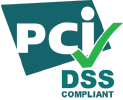Test volumes and revenues for your credentialing program will eventually plateau. It’s all part of the product lifecycle. Your credential is a product that grows, matures and declines.

New sources of revenue should be explored during the growth or maturity phases. A common option is to consider expansion into new markets, often in other countries.
Expanding a credentialing program beyond national borders presents opportunities and challenges. New revenue is the opportunity. Straining existing resources, especially customer service, is the challenge. If you use vendors/partners in the management or delivery of your program, they’ll have to stretch with you.
Per Lenora Knapp, author of The Business of Certification, there are several models for taking a credentialing program to other countries. This post looks at just one, likely the easiest to execute.
For an American credentialing program, the model would work like this. The credential would be marketed outside the United States but retain its distinct identity as a U.S.-based credential. The exam would not be adapted to foreign business practices, laws or languages.
Three questions to answer before expanding into other countries
1. What are the characteristics of the market in the target country?
Let’s challenge parental authority here and dare to answer that question with this question.
What is the pain that the target market will pay you to solve?
Reducing or eliminating that pain with your credential—and getting paid for that value exchange—is how you win. Payment is important because it signals commitment and skin in the game for the test candidate.
Professional market research will reveal the characteristics of the target market: the size, demographics, motivations, beliefs, competition, etc. The most important characteristic will be the market pain that your credential will reduce or eliminate.
2. How will local competition react to the entry of your credentialing program?

Your professional market research will identify your competitors. This is essential for positioning your credential and establishing your unique offer. The response of local competitors to your entry to the market will matter less for the home-based (U.S.-based) credential that we’re considering here.
On the other hand, if your credential is truly global and, therefore, responsive to, respectful of and compliant with foreign laws and business practices, the actions or reactions of competitors in the foreign market would be a concern. In that case, having a local business agent or at least a support network of certificants would be helpful in managing competitor issues.
3. Are exam procedures in the home market consistent with those in the foreign market?
Would multiple-choice questions, which are common in the U.S., be considered valid elsewhere? In many other countries, oral and essay examinations predominate. In addition to this validity issue, would a multiple-choice exam be fair to foreign test takers?
Also, if a degree is required for eligibility to take an exam, equivalencies would need to be established for degrees awarded inside and outside the U.S.
Issues related to validity, fairness and eligibility often fall within the purview of psychometrics. If you’d like to talk about these particular issues with a friendly member of the Kryterion Psychometrics Team, just look for the text link at the bottom of this post. The conversation is free, BTW.
Summing up then
Expanding an existing domestic credentialing program into international markets can indeed become a new source of revenue. Challenges relating to manpower, tests, business practices, trademarks, licensing, intellectual property and customer support will add new responsibilities to staff and require the help of experts.
It’s wise to enter foreign markets slowly beginning first with a home-based credential and working up to a true international credential when appropriate.
Contact us!
We’d love to know more about your credentialing plans, especially if they include expanding beyond your national borders.
We offer our clients’ test candidates access to our network of 1,100-plus testing centers in 126 countries around the world. We’re an international company ourself.

We also developed the technology that enables online proctoring, which allows us to proctor home exams 24/7 throughout the world.
Webassessor, our test-development and test-delivery platform simplifies and automates test registration, scheduling, payment, item editing, reporting and ongoing test development. It’s the perfect tool for managing domestic and/or international credentialing programs.
Discover the freedom and convenience that Webassessor delivers through its self-serve dashboard. Request your free, no-obligation demo here.
Wait! There’s more
Oh, and we also have a team of brilliant psychometricians who work everyday on domestic and international credentialing programs. They’d enjoy answering your questions about psychometrics, validity, fairness, scoring, test security, etc.
Just fill out our short online form here. You’ll receive an email with suggested times for your free, no-obligation phone call. Talk soon!







